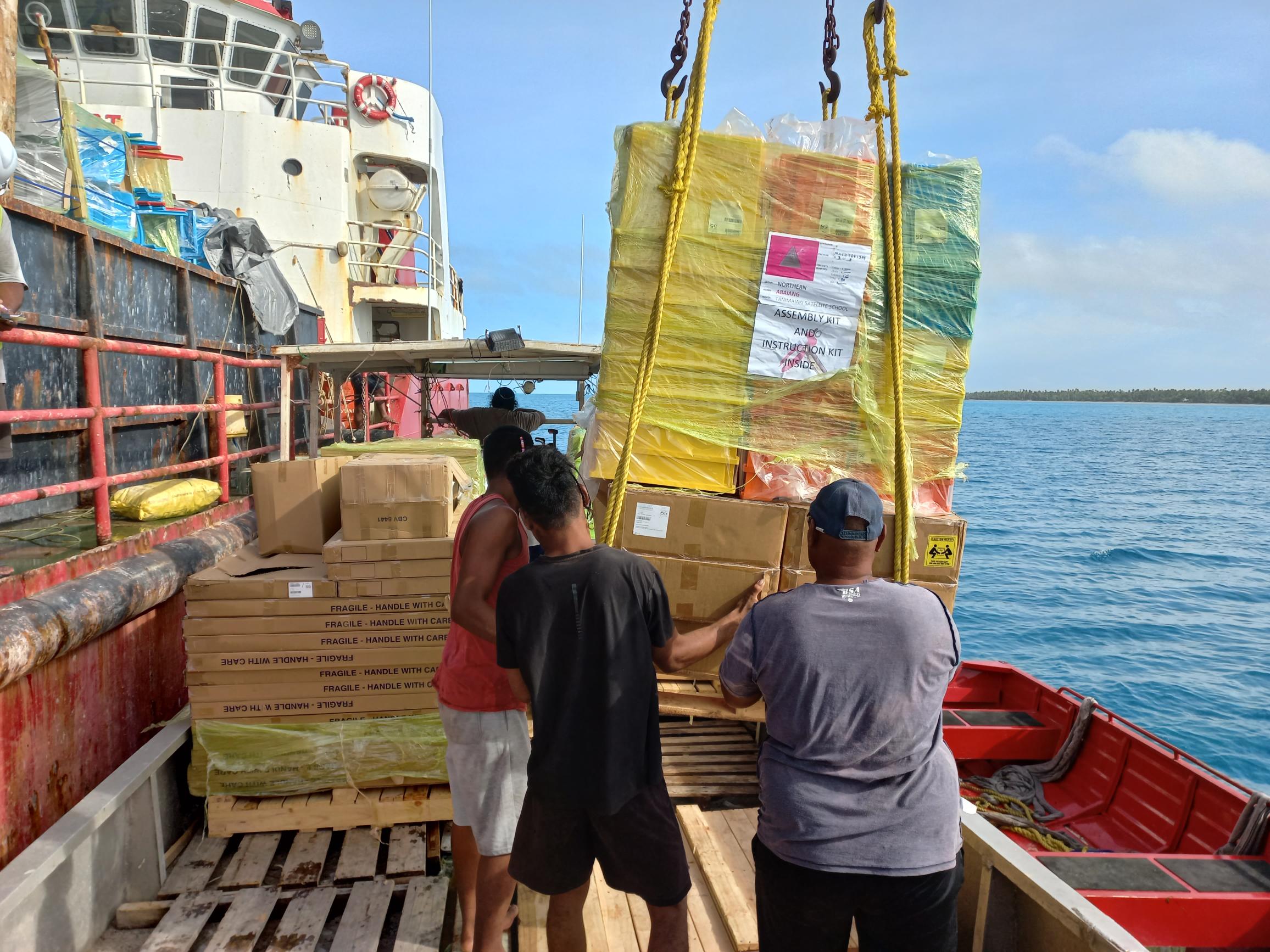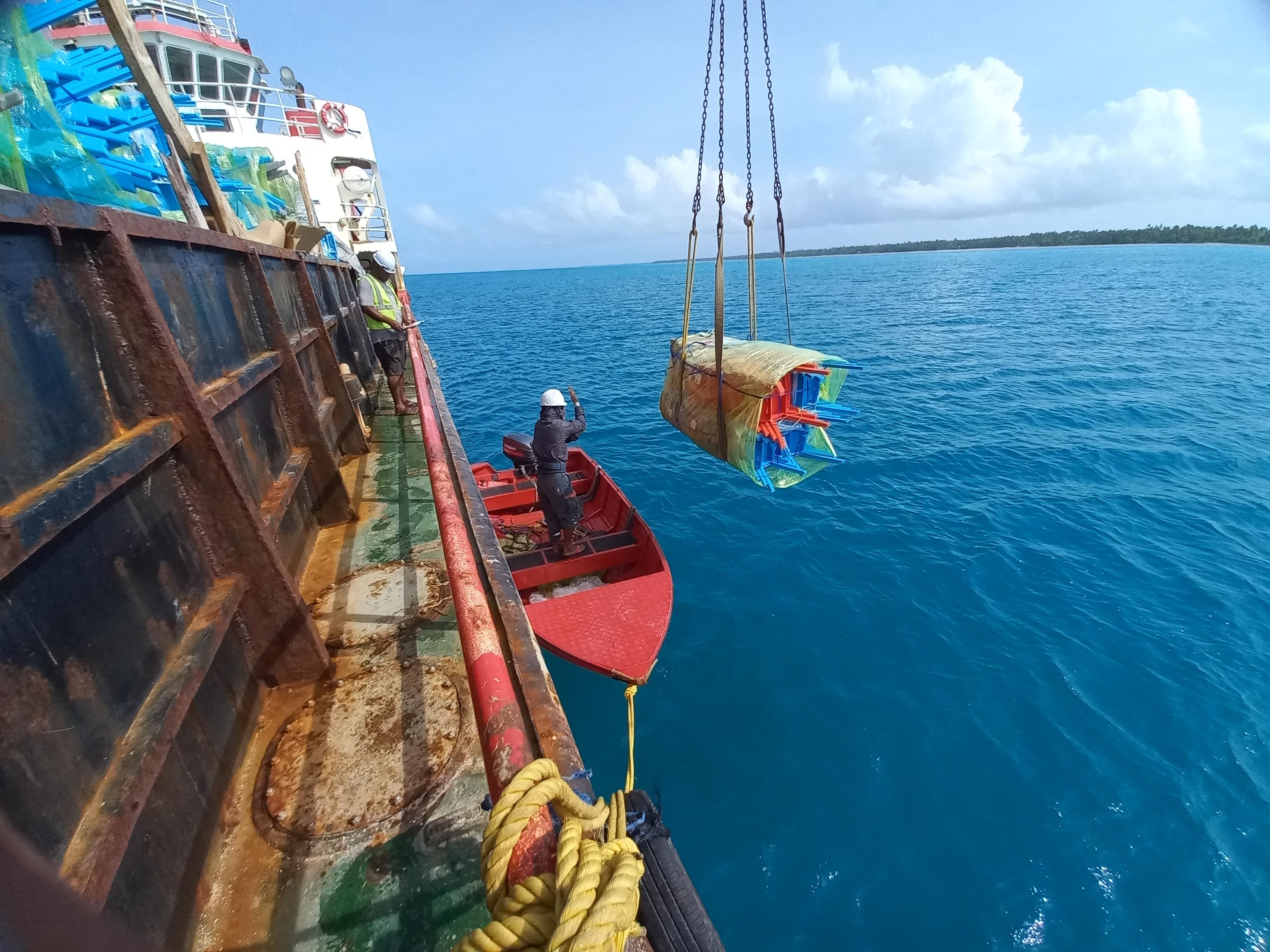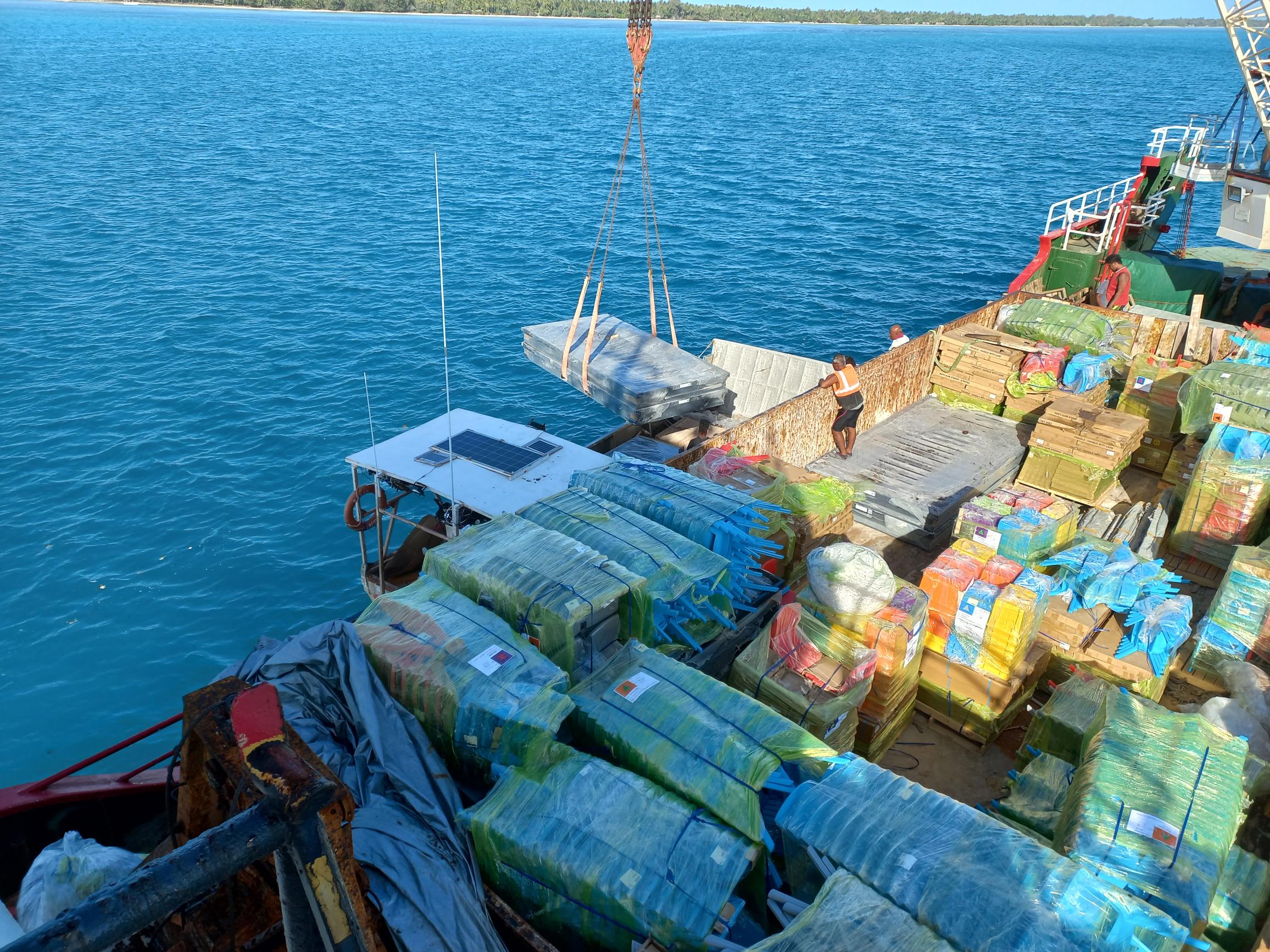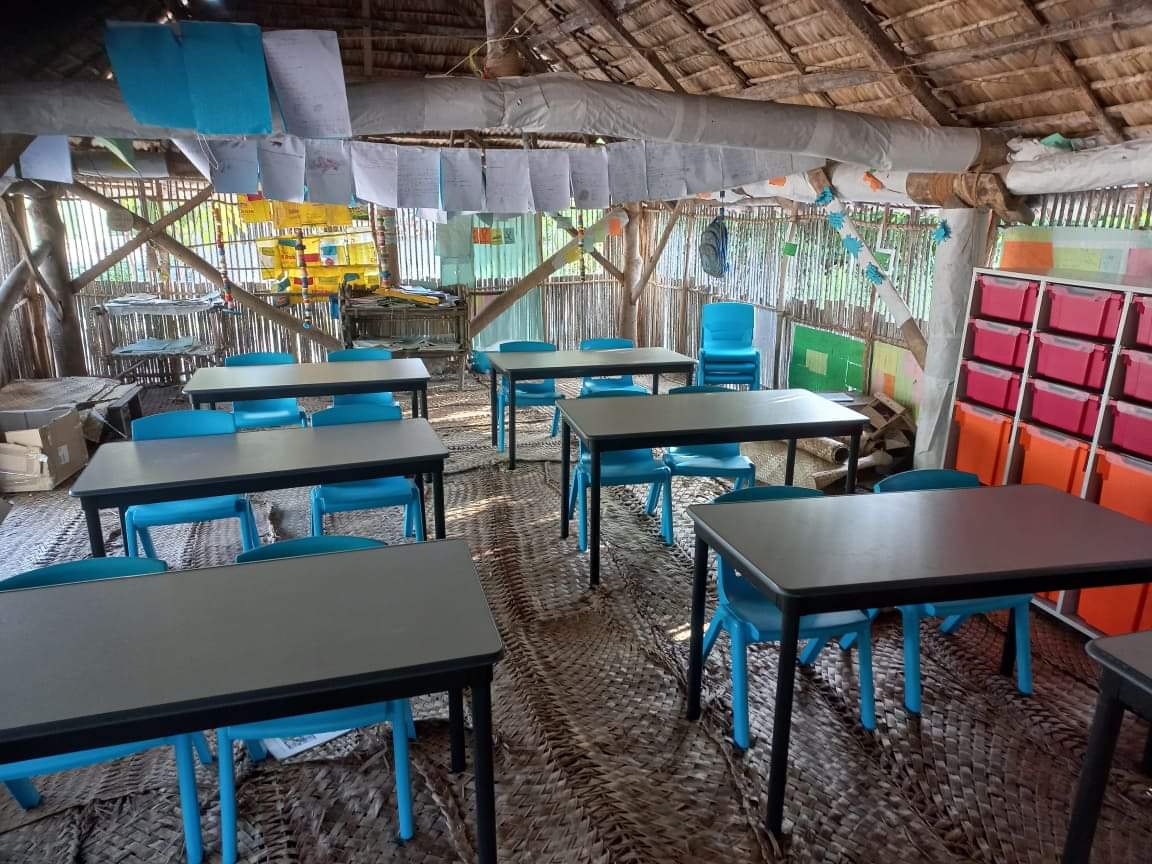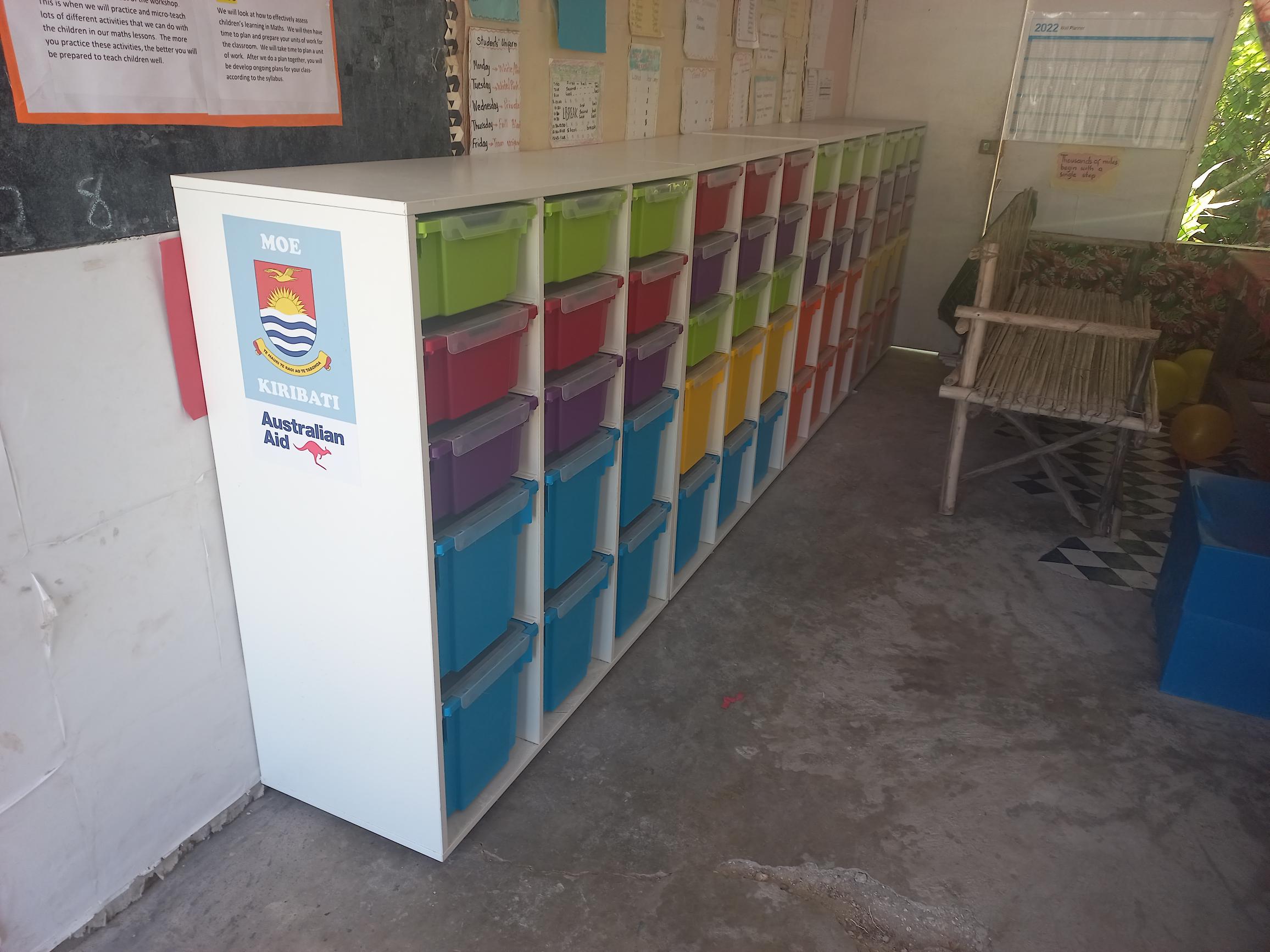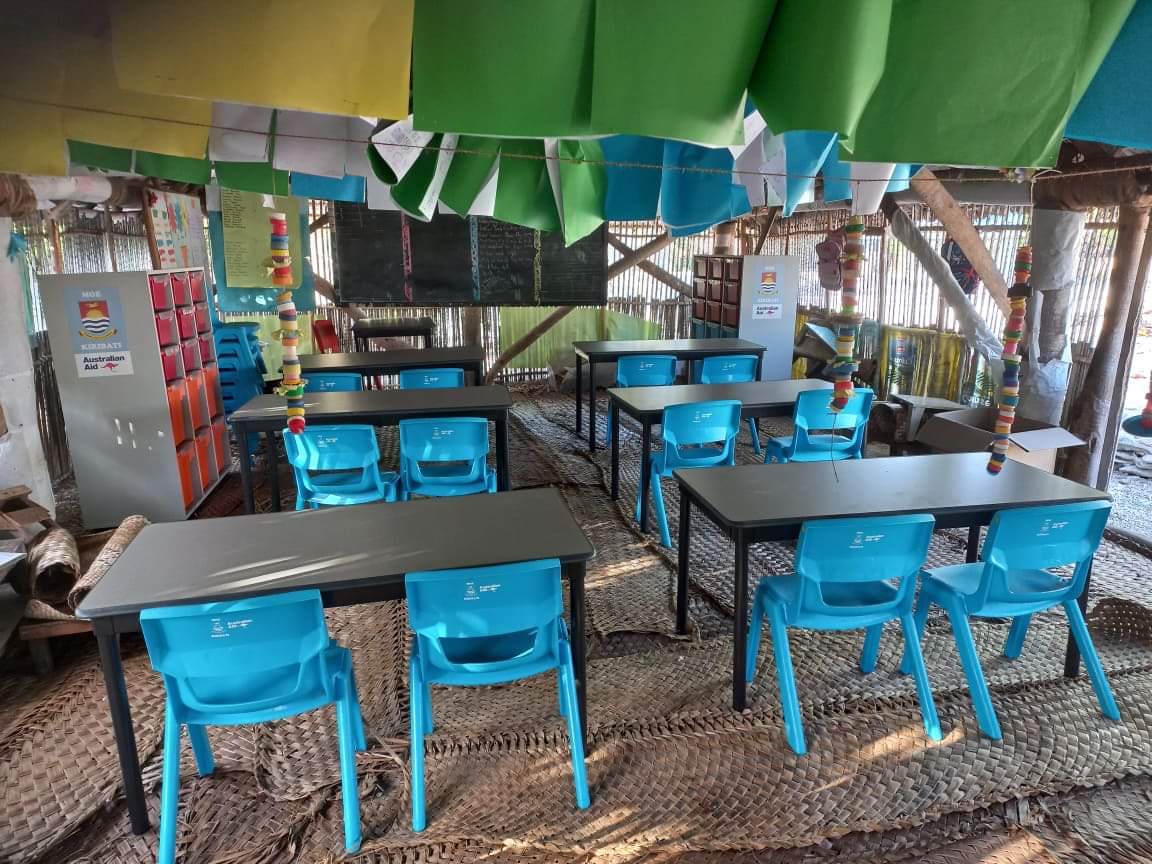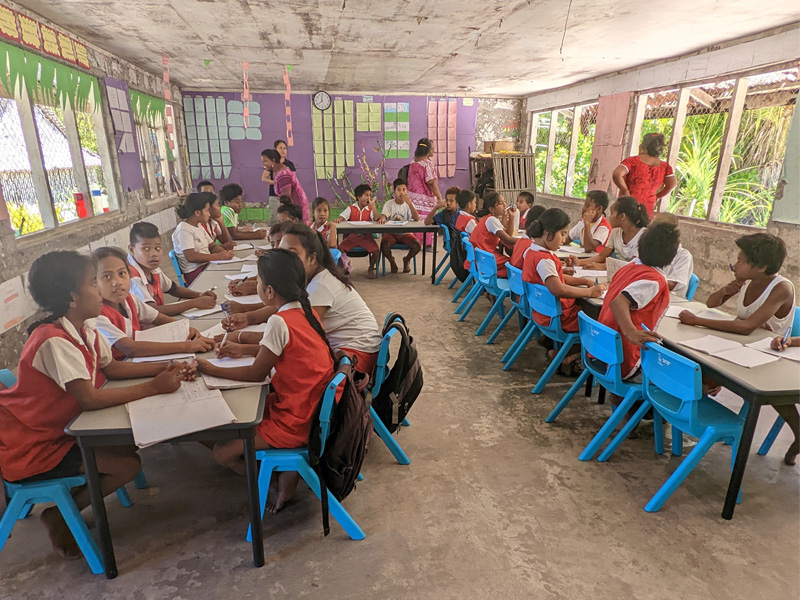With a small population, the 32 atolls and remote islands that make up Kiribati have never had the resources in their schools to help their children learn. With around 20% of students not finishing their schooling, this has unfortunately meant that school kids are not able to be the best that they can be.
Sebel has been working on the Kiribati project since 2021, meaning that we’ve spent the last two years working to provide schools across the country the resources they require to be able to attend school and learn in a classroom with furniture.
Funded by the Australian Government in a bid to give countries across the pacific a chance to teach their children who aren’t being widely educated, we worked hard to build and upgrade schools to help give children a better education. Prior to installing Sebel’s furniture into these schools, children were sitting on the ground and learning in the sand.
Getting Started
As part of a major infrastructure project happening around the Pacific, the Australian Government released a tender to fit out 97 schools across the 500 kilometreer stretch of Kiribati. Kiribati Islands Education Infrastructure Program (KIEIP) acted as a committee to oversee the build of new schools, rewrite the curriculum, and train new teachers to give students every chance for success. All parties were fully committed to creating the best environment for the students.
Being that the islands are so remote and have incredibly complex logistics for delivery, to win this tender Sebel needed to be able to find a solution to delivering the products to each individual school.
Due to the location and the difficult logistics, the KIEIP committee wanted to use quality, built to last furniture that they knew could stand the test of time. With sustainability being so important to keep these low-lying Islands around for a long time, having products that would need to be discarded after a couple of years was not an option. As Sebel is known for our quality products, the committee chose to work with us to fulfill the tender.
Product Requirements
Initially the tender was submitted with the committee wanting all of the schools to have trapezoidal shaped tables with four chairs per table. The experienced Market Manager for the Pacific, Anne Batiste, recognised that this would be an issue for this particular project due to the size of the tables and what the committee was trying to achieve for the students.
After analysing the project objective, Anne strongly recommended the Proteus Table as she believed this was the perfect solution. She had drawings made to share with the committee which allowed them to see why this was the best product for the space. She also had samples sent to the committee so they could see and use the product before they made the final decision.
The committee agreed with Anne’s approach and finalised their order which included the Proteus Tables, Postura Max® Chairs and a custom-built storage unit with gratnell trays.
The Process
As part of the tender, there were many requirements that needed to be met by Sebel to not only win the tender, but to make sure that the process of order and delivery was set up in a way that would allow each component to run smoothly.
The tender specified that the conditions included the goods having to be palletised on wooden pallets and needed to be shrink-wrapped with biodegradable shrink-wrap.
Processes that were important to have in place before beginning this project were due diligence documents like anti-child labour, reputable supplier policies, factory checks, safety checks, anti-corruption and anti-money laundering. Sebel was able to provide all documentation needed and pass any checks that had to be made prior to commencement of the project.
Sustainability
Previously mentioned, sustainability has major importance to the Islands of Kiribati as they are low-lying and do not have the means to dispose of rubbish correctly. The committee had sustainability in mind when outlining the requirements of the tender.
The custom-built storage unit that went into these schools not only had to be able to be broken down to fit onto the pallets, but also needed to be made with marine ply. Due to the location of the schools, and the fact that the classrooms are on the beach, this was the material that would be able to give them the most longevity, ensuring they would not have to replace for many years to come.
Because of the limitations with packaging disposal, Sebel were able to source a biodegradable shrink-wrap to deliver the order allowing it to be broken down.
Using wooden pallets to deliver the order also offered the opportunity for re-use, with the locals breaking them down to create a beach front café and any cardboard from the order was saved for art projects for the students. This meant that every material used in the delivery was able to be repurposed by the community.
Delivery
To make sure that the delivery and installation process ran smoothly, Anne and the Sebel team came together to work on a project plan. Due to the complexity of the language barrier, location as well as the different requirements and pallet sizes for each school, there was a brainstorming session between Anne and the logistics team to ensure that the logistical challenges could be resolved, and we could deliver the products to each school.
The solution that Anne and the Sebel team had come up with was colour coding the labels with different colours and shapes per island per school. For example, a pink triangle was for X school and a red square was for Y school.
After coming up with the solution and having each pallet labelled in our Sydney factory, it was now time for the delivery process to commence.
Containers were loaded in order of delivery for each of the 97 schools. There was a list of all schools and all islands that needed furniture to be delivered which was listed in order of delivery allowing the delivery team to keep track of the orders.
Sebel shipped to the main port in Tarawa, where MOE vessels were then used to transport to the smaller islands. When reaching the delivery locations, the pallets were offloaded onto lighter boats and floated ashore in order to avoid the coral reefs.
The tables and storage units were then assembled on the sand at the schools before being placed into the classrooms ready for students to use.
Outcomes
Students across the Kiribati Islands now not only have furniture, but fit-for-purpose furniture that is made for them to succeed. They have different furniture sizes based on their age groups, truly giving them the resources they need to learn at their best.
We’ve had feedback from the schools and the committee that “more kids are actually going to school” and that the students are loving their new classrooms.
“We go that extra mile to do the best job that we can.” – Anne Batiste

